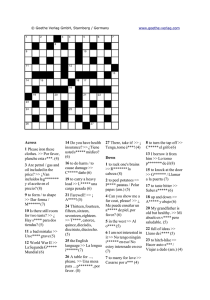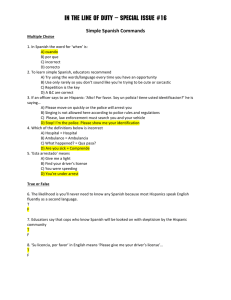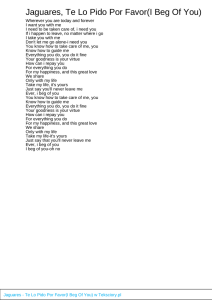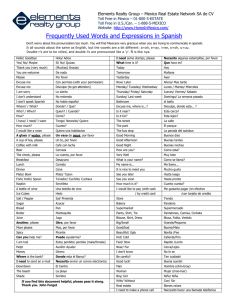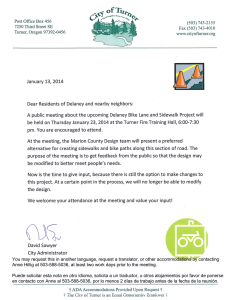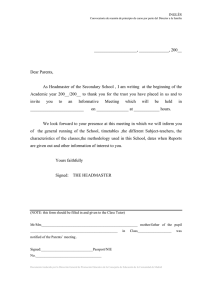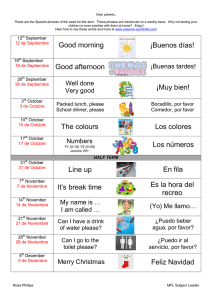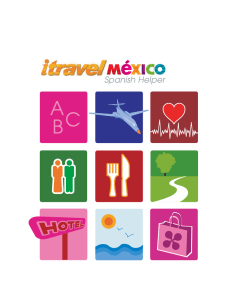Lesson 3: This Please
Anuncio
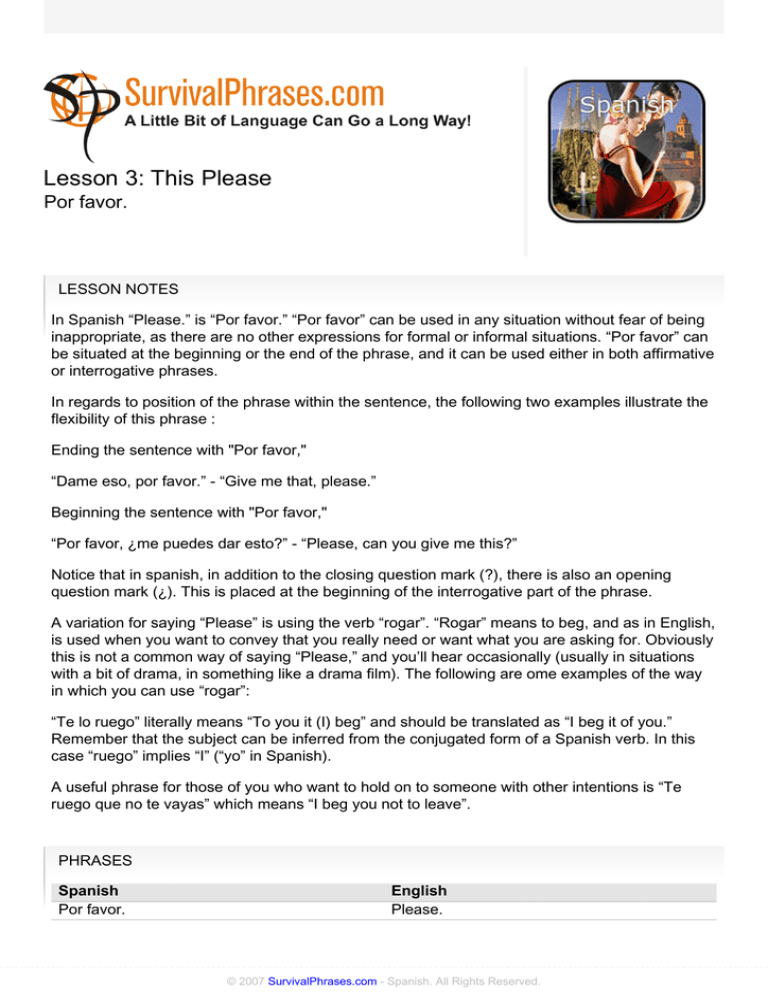
Lesson 3: This Please Por favor. LESSON NOTES In Spanish “Please.” is “Por favor.” “Por favor” can be used in any situation without fear of being inappropriate, as there are no other expressions for formal or informal situations. “Por favor” can be situated at the beginning or the end of the phrase, and it can be used either in both affirmative or interrogative phrases. In regards to position of the phrase within the sentence, the following two examples illustrate the flexibility of this phrase : Ending the sentence with "Por favor," “Dame eso, por favor.” - “Give me that, please.” Beginning the sentence with "Por favor," “Por favor, ¿me puedes dar esto?” - “Please, can you give me this?” Notice that in spanish, in addition to the closing question mark (?), there is also an opening question mark (¿). This is placed at the beginning of the interrogative part of the phrase. A variation for saying “Please” is using the verb “rogar”. “Rogar” means to beg, and as in English, is used when you want to convey that you really need or want what you are asking for. Obviously this is not a common way of saying “Please,” and you’ll hear occasionally (usually in situations with a bit of drama, in something like a drama film). The following are ome examples of the way in which you can use “rogar”: “Te lo ruego” literally means “To you it (I) beg” and should be translated as “I beg it of you.” Remember that the subject can be inferred from the conjugated form of a Spanish verb. In this case “ruego” implies “I” (“yo” in Spanish). A useful phrase for those of you who want to hold on to someone with other intentions is “Te ruego que no te vayas” which means “I beg you not to leave”. PHRASES Spanish Por favor. English Please. © 2007 SurvivalPhrases.com - Spanish. All Rights Reserved. Spanish Te lo ruego. Dame eso. ¿Me puedes dar esto? Ven conmigo. English I beg you. Give me that. Can you give me this? Come with me. VOCABULARY Spanish rogar anda porfa English to beg please (casual used by younger generations) please (casual used by younger generations) QUICK TIP Apart from the obvious situations in which you would use "please" for something (when asking for something in a store, when choosing a cake in a bakery), you can also use the phrase “Por favor” as is in the following situations and your intentions will be clear: - when you are in a bar or restaurant and want the waiter to attend to you - when you find an deserted desk in the reception of your hotel and want someone to help you - when you stop someone in the street for directions and point to your destination hoping for directions QUICK TIP 2 There are two very informal (which doesn’t mean unrespectful) and commonly used expressions, that you can hear in your trip. They are more young people slang than common language, but they are used when talking to someone you are very confident with. For example, by members of the family, workmates, classmates... These following expressions are equivalent to “Por favor”: “Anda” and “Porfa”. “Anda” literally means “(You) walk” (absolutely non-sense!) and “porfa”, as you can guess, is a short form for “Por favor”. See a couple of examples: “Anda, ven conmigo.” means “Please, come with me.” “Ayúdame a hacer este informe, porfa.” means “Help me to do this report, please” © 2007 SurvivalPhrases.com - Spanish. All Rights Reserved.
